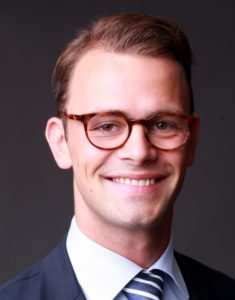
When it comes to immigrant integration policies, the Netherlands is a country of extremes. Until the late 1970s, the general belief was that immigrants would stay only temporarily. The only exception were the “repatriates” who had arrived from Indonesia after its independence. Therefore, an integration policy was not deemed necessary.
In the 1980s, when it had become clear that neither all Mediterranean “guest workers” and their families, nor all late-colonial migrants from the Caribbean would ever return home, a rather sophisticated minorities policy was developed that enabled the newcomers to preserve their original cultural identity.
This policy, however, failed to take into account that immigrants need to adapt to the host society to some extent if one wishes to avoid their social and economic marginalisation. The fact that, meanwhile, a second generation was coming of age was also overlooked. They were born and raised in an environment that was very different from that of their parents, and their primary frame of reference was no longer their parents’ country of origin.
Over time, migrants from (mostly) Turkey and Morocco have come to cluster in segregated settlements. This has become ever more problematic with the current influx of refugees and the repercussions of the failed coup against President Erdogan in Turkey. Even though these events do not seem to be related, their effects coincide in the Dutch political arena when it comes to migration policy-making and campaigning for the 2017 election.
When are you “one of us”?
With the Dutch parliamentary elections coming up next year, many political parties (especially right-wing parties) are currently promising to radically reduce the number of immigrant, particularly Muslims. This goes hand in hand with an increasingly Eurosceptic attitude. In order to win votes, politicians claim that the European Union and its open borders are a threat to the Dutch sovereignty. Whether this will lead to a “Nexit” (the Netherlands leaving the EU), only time will tell…
What I find most striking in this tale is that that the European Union is built on principles of equality, respect, equal chances and peace. Moreover, European history is the history of living with difference, of negotiating it, understanding it, fighting it, or seeking ways of peaceful coexistence between Catholics and Protestants, Gentiles and Jews, Christians and those of other faiths or convictions.
Why is it then that in times of crises, some claim to be just a little bit more equal than others? Why do the values we had established do no longer seem to hold? Why do people find it so frustrating to live with differences? And who is “one of us”? These are some motives in this tale that come up again and again.
European Union under threat
I can think of some reasons why people actually fear the influx of new migrants and refugees (fewer chances on the job market, a change in culture, etc.). This is something our societies need to take into account and deal with. It seems to me that euroscepticism is a much bigger threat, especially from an economical point of view.
The European Union was built on the principles of the free movement of goods, services, labour and capital; of equal rights for all citizens before European law; of equality among the member states; and of significant financial transfers from richer regions to poorer ones. But if one lot of Europeans thinks it has little in common with people in other parts of the union, those EU policies will be hard to sustain. In the end, this will also affect the positioning of European countries in the global market.
The European Union is threatened as an institution due to the inability of national governments to deal with crises, especially in times of elections. Politicians seem to be responding to the refugee crisis in an islamophobic and Eurosceptic fashion in order to win votes. What they should be doing instead is to act rationally and to safeguard the interest of all by arguing in favour of strong European ties and institutions.
Willem Mouton will be participating in the Young Professionals Seminar at Lake Como from September 23-25, 2016.


